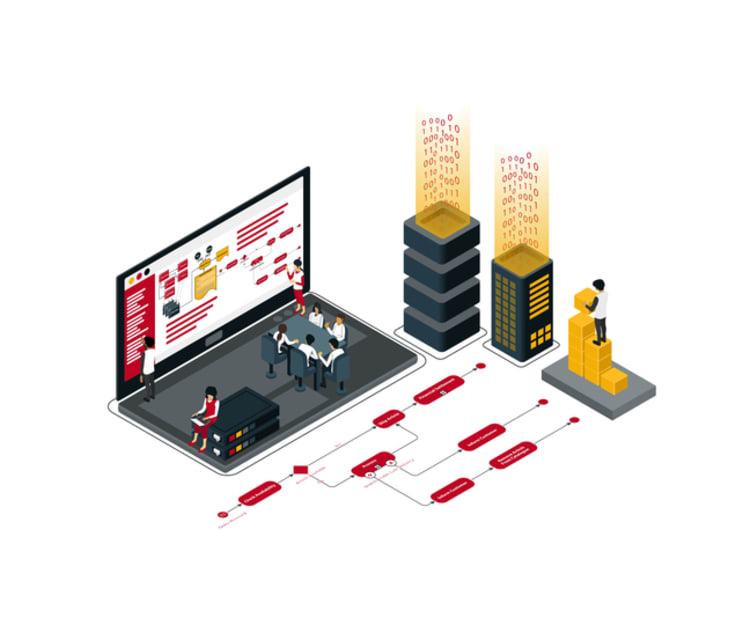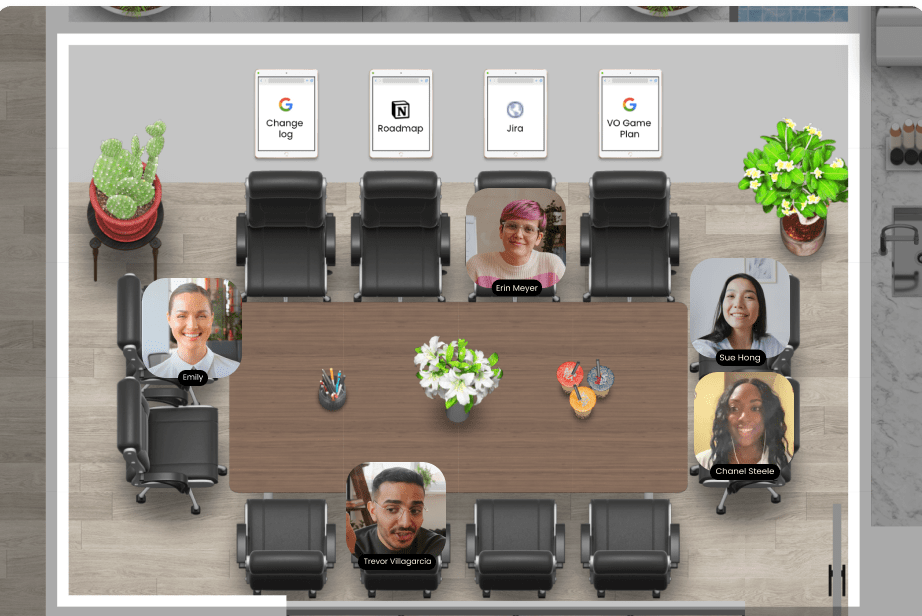As the world continues to navigate the challenges of remote work, “what is a virtual event?” has become a common question. Virtual events have emerged as a powerful way to connect, share knowledge, and foster community. In this comprehensive guide, we’ll explore the ins and outs of planning and hosting successful virtual events that captivate audiences and deliver results. Let’s dive in!
Key Takeaways
- Virtual events are digital alternatives to physical gatherings, offering cost-efficiency and global reach.
- Essential components of a successful virtual event include technology platforms, engaging content & speakers, networking opportunities and effective promotion strategies.
- Event organizers should measure success by setting goals & objectives, budgeting, analyzing data/ROI. Identifying trends for future events.
Defining virtual events

Virtual events, also known as online events, are digital alternatives to physical events, enabling virtual attendees from various locations to partake in activities, presentations, and networking opportunities. To host a virtual event, event organizers must ensure seamless virtual event technology and engaging content for the next virtual event.
Adapting to the new normal, businesses and organizations have recognized virtual event planning as a valuable skill for orchestrating successful and engaging experiences for attendees.
Types of virtual events
From webinars and virtual conferences to trade shows and hybrid events, there are numerous types of virtual events, each offering distinct features and advantages. Webinars, for instance, are learning-focused, collaborative, and interactive events that have become a popular choice for businesses and educational institutions alike.
Meanwhile, virtual conferences provide a more immersive experience, complete with keynotes, breakout sessions, and on-demand content to cater to attendees’ diverse interests and schedules.
Advantages and disadvantages
One of the key benefits of virtual events is their cost-efficiency, as they eliminate the need for physical venues, catering, and transportation. Additionally, they offer a global reach, enabling event organizers to:
- Connect with a much larger audience than would typically be possible with in-person events
- Reach participants from different countries and time zones
- Reduce travel expenses for both organizers and attendees
- Provide flexibility for attendees to join from anywhere with an internet connection
However, virtual events may experience challenges in terms of engagement, technical issues, and replicating the unique atmosphere of in-person gatherings.
Essential components of a virtual event

Successful virtual events are built on three core components: robust technology and platforms, captivating content and speakers, and plentiful networking and interaction opportunities.
By carefully selecting the right technology and platform, crafting compelling content, and providing avenues for attendees to connect, event organizers can ensure a memorable and impactful virtual event experience.
Technology and platforms
The foundation of a successful event lies in the selection of the appropriate virtual event platform. Virtual event platforms offer a range of features to facilitate successful events, including live streaming, chat functions, and interactive booths. Choosing the right virtual events platform is crucial for the overall success of your virtual event.
Examples of well-known virtual event platforms include Zoom, Microsoft Teams, and Google Hangouts, each offering unique features tailored to different types of events and audience needs.
Content and speakers
Attracting and retaining attendees largely depends on the quality of content and speakers who can deliver valuable information through engaging presentations. To ensure a successful virtual event, event organizers should carefully select content and speakers that are relevant to the audience and tailored to the event’s objectives.
By focusing on delivering high-quality content and engaging presentations, organizers can create a captivating virtual event experience that will leave a lasting impression on attendees.
Networking and interaction
The vitality of virtual events lies in networking and interaction opportunities that cultivate connections and engagement among attendees. Virtual event platforms often offer features such as breakout rooms, live Q&A, and matchmaking to facilitate networking and interaction.
By incorporating these features into the event, organizers can create a dynamic and engaging environment that encourages attendees to actively participate and forge meaningful connections.
Planning and organizing a virtual event

The orchestration of a virtual event requires a clear vision of goals and objectives, effective resource allocation, and strategic promotion to draw in attendees.
By focusing on these elements, event organizers can ensure a smooth and successful event that delivers on its intended outcomes.
Setting goals and objectives
A clear direction and purpose for the event can be established through the setting of specific goals and objectives. By identifying KPIs, such as attendance, engagement, and lead generation, event organizers can track the event’s performance and determine areas for improvement.
Establishing clear goals and objectives also supports the planning and organizing process, guiding decision-making, and resource allocation to ensure a successful event.
Budgeting and resource allocation

Effective budgeting and resource allocation paves the way for cost management and the success of the virtual event. When creating a budget, event organizers should consider factors such as:
- Technology
- Speakers
- Marketing efforts
- Additional costs associated with the event
By allocating resources effectively, organizers can minimize costs, maximize ROI, and deliver a high-quality event experience for attendees.
Promoting your virtual event
Attracting attendees and driving registrations hinge on strategic promotion of your virtual event. Event organizers can leverage various channels, such as social media, email marketing, and content marketing, to reach their target audience and generate interest in the event.
By utilizing a mix of promotional tactics and tailoring messaging to resonate with the target audience, organizers can increase event attendance and ensure a successful virtual event.
Enhancing attendee engagement

The success of a virtual event is fundamentally tied to enhanced attendee engagement, which keeps participants interested and involved throughout the proceedings. Strategies like gamification, live Q&A, and post-event follow-up can help create a dynamic and engaging environment that keeps participants captivated and eager to participate.
Gamification and interactive activities
Gamification and interactive activities, such as quizzes, scavenger hunts, and leaderboards, can add excitement and competition to virtual events. By incorporating these elements into the event, organizers can create a fun and engaging atmosphere that encourages attendees to actively participate and immerse themselves in the experience.
Gamification can also help promote attendee engagement and enhance the overall event experience, leading to increased downloads of the mobile event app and positive word-of-mouth.
Live Q&A and polling
Live Q&A and polling are important features for virtual events, as they allow attendees to actively participate in the event, ask questions, and share their opinions. By incorporating live Q&A and polling into the event, organizers can foster engagement and interaction among attendees, creating a more inclusive and collaborative environment.
These features can also help event organizers gather valuable feedback and insights from attendees, which can be used to refine future events and improve overall event performance.
Post-event follow-up and content repurposing
Maintaining connections with attendees and extending the event’s impact beyond its conclusion are achieved through diligent post-event follow-up and clever content repurposing. By following up with attendees after the event, organizers can gather feedback, address any questions or concerns, and continue to engage with attendees in a meaningful way.
Content repurposing, such as turning event presentations into blog posts or podcasts, can help extend the reach of the event and provide valuable resources for attendees and prospective attendees alike.
Measuring virtual event success

The measurement of virtual event success serves as a critical evaluation tool for organizers to assess their efforts and pinpoint areas for improvement. By identifying key performance indicators (KPIs), analyzing data, and calculating return on investment (ROI), event organizers can gain valuable insights into the event’s performance and make data-driven decisions to optimize future events.
Identifying KPIs
The performance of a virtual event and potential areas for improvement can be tracked and determined by identifying KPIs like attendance, engagement, and lead generation. By monitoring these metrics, event organizers can gain insights into attendee behavior, engagement levels, and overall event performance, which can be used to refine future events and optimize event strategies.
Furthermore, KPIs can help organizers set clear goals and objectives for their events, ensuring a cohesive and purpose-driven approach to event planning and execution.
Analyzing data and ROI
Insights into the event’s effectiveness, cost savings, and overall success, which guide future event planning and strategy, can be gained through data and ROI analysis. By evaluating the costs of the event against the revenue generated, organizers can determine the financial impact of their virtual events and assess whether they are achieving their desired outcomes.
Additionally, data analysis can help organizers identify trends, patterns, and areas of success or failure, which can be used to optimize future virtual events and maximize ROI.
Future trends in virtual events with Kumospace

The dynamic landscape of virtual events is marked by continuous evolution, as the industry witnesses groundbreaking trends and technological innovations that are redefining its future. Among these trends, the rise of remote events stands out, seamlessly blending the richness of in-person interactions with the convenience of virtual experiences. Embracing the forefront of this evolution is Kumospace, a pioneering virtual office and events company.
With their innovative platform, Kumospace adds a layer of interactivity and engagement, setting the stage for unforgettable experiences. As the demand for virtual events escalates, event organizers find themselves at a pivotal juncture, navigating this transformative era with strategies that promise to captivate and resonate with their diverse audiences.
FAQs
To help you better understand the world of virtual events, we’ve compiled a list of frequently asked questions that address some of the most common concerns and inquiries related to virtual event planning, execution, and measurement.
Questions may include topics such as:
- What are the benefits of hosting a virtual event
Summary
In conclusion, virtual events have become an essential tool for businesses and organizations looking to connect, engage, and educate their audiences in today’s increasingly digital world. By focusing on the key components of a successful virtual event, such as technology, content, networking, and attendee engagement, event organizers can create memorable experiences that leave lasting impressions on their audiences. As the landscape of virtual events continues to evolve, staying informed of emerging trends and technologies will be crucial for ensuring the continued success and growth of your events.
Frequently Asked Questions
A virtual event is an online experience that allows people to connect and interact remotely over the web, rather than meeting in person.
A virtual event enables individuals to meet, exchange ideas, and do business with people from all over the world via platforms such as Zoom, Microsoft Teams, or Facebook Live.
Attendees join online in real-time for a unique interactive experience.
Live events take place in one physical space, whereas virtual events are accessed online from anywhere.
Hybrid events combine both these formats, with some attendees present in person and some attending virtually.
Incorporating gamification, live Q&A, polls, and interactive activities can create a dynamic environment and encourage active participation from attendees in virtual events.
These activities can help to keep attendees engaged and make the event more memorable. They can also provide valuable feedback to the event organizers.
Technology is essential for hosting successful virtual events, providing the foundation for the event experience with features like live streaming, chat functions, and interactive booths.
These features enable attendees to engage with the event in a meaningful way, allowing them to connect with speakers, ask questions, and participate in activities.
Live streaming allows attendees to watch the event in real-time, while chat functions.





